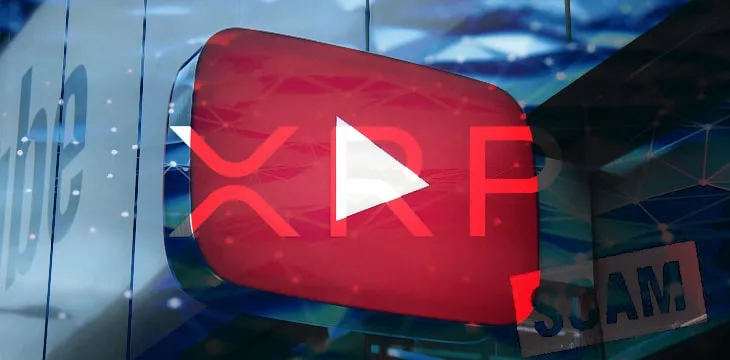|
Getting your Trinity Audio player ready...
|
Ripple is fed up with YouTube. The San Francisco firm responsible for trying to revolutionize cross-border banking systems and the XRP digital currency is suing the Google-owned video-sharing platform for not doing enough to prevent scammers from using the likeness of its CEO, Brad Garlinghouse, as well as that of other major business leaders.
Ripple filed its complaint with the San Francisco courts, arguing that YouTube is passively allowing scammers to defraud consumers, resulting in irreparable harm to the companies.
Garlinghouse and Ripple accuse YouTube of willfully damaging the reputations and brands associated with the company. The lawsuit wants the courts to prohibit YouTube from being able to profit from the scams and to prevent the platform from allowing them to be published. The suit also asks for an unspecified amount of money as compensation for the damage caused by YouTube’s lack of prevention of the scams’ publication.
The video-sharing service is accused of being remiss in its security protocols, as well. This lack of oversight has allowed legitimate channels to be hacked and overrun, and illegitimate content uploaded to perpetrate the Ripple scams. The content often shows Garlinghouse conducting interviews as if he were linked to the illegitimate operation in an attempt to give credence to the activity.
Because of YouTube’s lack of oversight, Ripple has contracted an independent entity to monitor social media and report any fraud or scams. Ripple’s lawsuit asserts that the company has brought a number of fraudulent channels to YouTube’s attention, but the company has either never reacted or reacted too slowly. The suit adds, “YouTube regularly touts its robust tools for self-regulating content on its platform, which purportedly include ‘cutting-edge machine learning technology’ and a sprawling network of human reviewers. But in this case, faced with a pervasive Scam, YouTube chose, and continues to choose, inaction.”
Similar scams and fraud have been found on other social media platforms, but these have been more responsive to taking down the malicious content. Because YouTube drags its feet, Garlinghouse finally reached his boiling point and decided to target the company. He explained to Fortune magazine, “YouTube generated $15 billion in ad revenue last year, and you’re telling me they can’t spend more money to police obvious scams that violate their own terms of service?”
While a law exists that would seemingly prevent YouTube from facing a lawsuit over its content, the company may find it doesn’t have the legal backing it expects. Section 230, as the law is most often called, protects companies from certain types of legal attacks; however, it doesn’t protect them from copyright and trademark violation claims. Ripple is using trademark violations as the basis for its suit, and will most likely find enough legal support for its case.

 09-16-2025
09-16-2025 





